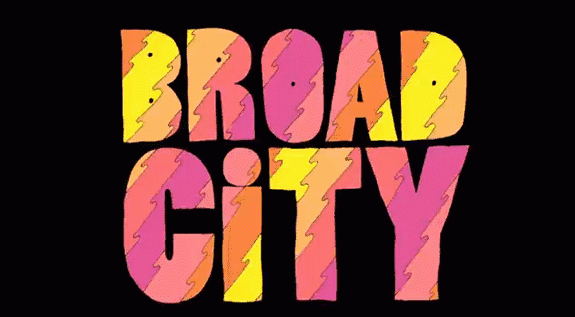After a four–month hiatus, Broad City is (finally!) back for its highly anticipated fourth season.
In a sea of stoner comedies and millennial dramas set in New York (cough cough, Girls), your girls Abbi and Ilana have managed to set themselves apart with a quick wit and social consciousness that has elevated their show beyond what is expected of a late night comedic program.
One of the most "controversial" things about Broad City is exactly what makes it so great: the unapologetic and anti–heteronormative approach to sexuality. Ilana Glazer’s character’s sexuality is as undefined and unrestricted as she is, allowing the show to portray all kinds of relationship intimacies, sexual or otherwise, that don't usually get the attention or representation they deserve. After all, who would Ilana be without her ridiculously complicated relationship with Lincoln and her mildly non–platonic obsession with Abbi Jacobsen's ass? Who would Abbi be if she did not peg her neighbor Jeremy (and then subsequently melt his dildo in the dishwasher as only she could do)?
As both actresses and writers on the show, Ilana and Abbi have incorporated a subtle satire and staunch political awareness into their namesake characters in a way that propels Broad City beyond humor–for–the–sake–of–humor, although that definitely does have its place and time in the show. Whenever any political statement is made (be it on sexism, the patriarchy, cultural appropriation, the election, etc.) it is done so with deliberate intent and a careful eye.
Not every declaration is a middle finger to “the man”—like when Abbi and Ilana are told by male passersby that “you’re pretty, you should smile more” and they use their middle fingers to contort their faces into a smile. Rather, the most powerful moments are in the small details. The show decided to use brown pixels to censor Ilana’s vagina in a scene with partial nudity to show that she, like most women do, has pubic hair and that body hair is not something for a woman to be ashamed of.
At the heart of Broad City’s charm lies its undeniable relatability for anyone who has ever felt anything less than peachy keen (so yeah, everyone). On the one hand, you have Abbi, who started out as the struggling artist who was the voice of reason in contrast with Ilana’s balls–to–the–wall craziness. Throughout the past three seasons, her character has taken on a nuance and maturity that have made her so much more than just another neurotic stereotype. Whether it’s finally addressing how her parents’ divorce affected her ability to have a real romantic relationship in a game of “never–have–I–ever” during a hurricane, or planning the hell out of packing her perfect Drew Barrymore–endorsed carry–on bag for Birthright, Abbi is a living embodiment of how to deal with your anxieties and idiosyncrasies while still being a (albeit semi) functional adult.
Then, you have Ilana. Yes, she’s the prototypical stoner free–spirit stereotype who has a problem with any and all authority figures. She so badly wants to live an adventurous life unhindered by the constructs of society, yet Ilana struggles to truly be happy, unable to balance wanting to be independent and unpredictable with wanting to have an emotionally complex and potentially romantic connection. As frequently as the show paints Ilana as this larger–than–life, extremely outspoken character, she is equally portrayed as being incredibly vulnerable—whether it’s in the form of taking on a persona in attempts to hide her lack of clarity with who she truly is, to breaking down at a family dinner after being broken up with by her non–boyfriend.
No matter how larger than life the scenario or how ridiculous the antics, there always remains something in Abbi or Ilana that is so identifiable, no matter how much you have your life together (or tell yourself that you do.)
And it’s that kernel of truth—that it’s okay to not always be okay— that makes this show not only one of the funniest and most relevant shows on the air, but one of the most important.

